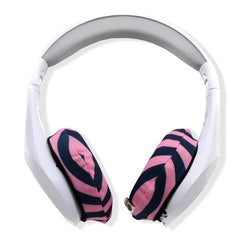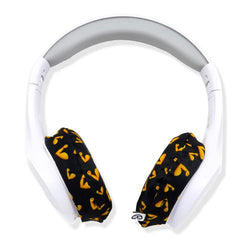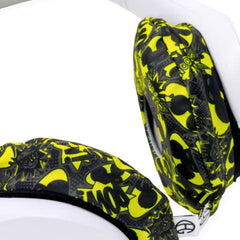What is Muscle Dysmorphia?
What is Muscle Dysmorphia?
Muscle dysmorphia is a type of body dysmorphia frequently referred to as ‘bigorexia’.
Muscle dysmorphia is the opposite of anorexia and it affects more men than women. Sufferers believe that they have inadequate and undeveloped muscle mass often insisting that they are too lean when in reality, they often have a well-developed musculature. This disconnect between perception and reality is described by The Anorexia Nervosa and Related Eating Disorders website (ANRED) as ‘the brain being unable to map the bodies boundaries making people think they’re smaller than they actually are’.
What Causes Muscle Dysmorphia?
It’s believed that a number of factors can play a role in the development of muscle dysmorphia. These include a genetic predisposition, experiences of trauma such as sexual abuse or violence or of having even been bullied. Social pressure must surely play a role, too, given that men are now under increasing pressure to look lean and muscular and ‘masculine’. Hollywood actor Jason Mamoa was recently criticized in the media for not having a perfectly ripped body off-screen.
Low self-esteem can also predispose a person to muscle dysmorphia. Gyms can be incredibly toxic places and often people have little choice but to compare themselves to others. In an article for the Guardian, Sirin Kale writes that positive feedback in the gym can also escalate into muscle dysmorphia. After all, who doesn’t like a compliment and if your being told you look great, that you look big, that your muscles are huge, then it’s hard to rest on those laurels. Bigger is always better until it isn’t.
What are the Symptoms of Muscle Dysmorphia?
Some of the more recognisable symptoms of muscle dysmorphia include:
- Becoming obsessed with body image and a need to be bigger.
- Over-training.
- Mood swings.
- Prioritising exercise over everything else to the detriment of relationships, careers and responsibilities.
- The use of steroids to get bigger.
- Excessive use of protein supplements.
- A terror of losing mass and of being small.
- Frequent mirror checking.

Do Bodybuilders Have Muscle Dysmorphia?
Not all bodybuilders will suffer from muscle dysmorphia but they are the group seemingly most at risk. For Vice, Jessie Gill, writes “Just as there are higher rates of anorexia nervosa among the physique-oriented ballet industry, there is clearly a disproportionate amount of MD within the competitive bodybuilding community.”
Equally, bodybuilding.com reported on a study where it was found that non-professional athletes in sports where muscularity was emphasised had a ‘higher degree of body uneasiness and inappropriate eating attitudes.’
Bodybuilding does seem to predispose some people to muscle dysmorphia. The nature of the industry: the building of physical strength, of shredding fat with strict dietary controls, and to then have it all held up and be publically examined for celebration or criticism may make those prone to obsessive behaviours more vulnerable to a dysmorphic disorder.
The difference for bodybuilders without dysmorphia is that they can train hard but they can put the weights down and enjoy a balanced lifestyle with fulfilling friendships, relationships and careers. They may want to be bigger or stronger but they can see where they’re at. When they look in the mirror they don’t see something smaller or leaner reflected back at them. Being competitive, being driven and being serious about your sport and your physique doesn’t mean having dysmorphia.
How is Muscle Dysmorphia Treated?
Muscle Dysmorphia can be treated in a number of ways. A doctor might suggest cognitive behavioural therapy (CBT) and talking through toxic thought patterns associated with body image and masculinity can be very useful. If steroids or performance-enhancing drugs are involved then this would need to be addressed, too. Anti-depressants might help as dysmorphic illnesses often go hand-in-hand with depression.
Often the biggest challenge in treating someone with muscle dysmorphia is getting that person to admit that they have a problem and that they need help. Society doesn’t celebrate alcohol or drug dependency but it does put a high value on physical strength. Modern masculinity is portrayed in the media as being strong, as having muscles and of taking up more physical space in the world. Nobody wants to be Steve Rodgers before March 1941 and the super-soldier serum but people want to look like Captain America. Sufferers might also not see muscle dysmorphia as a problem. Some might actually regard it as a blessing: an advantage to getting bigger over those without the disorder.
What Happens if Muscle Dysmorphia is Left Untreated?
A person’s private life inevitably suffers. Relationships may start breaking down as so often they do when one person lives with an obsessive. Mood swings are a common symptom for a sufferer to develop which can lead to social isolation. Nobody wants to be around ill-tempered people. It can be difficult for the sufferer to think about anything else other than diet and exercise so it’s quite common to hear about careers suffering, too. At the gym, a person may begin to experience over-training: increased heart rate, little or no motivation to workout (although almost inevitably they will), degraded performance, muscle soreness and trouble falling asleep despite considerable fatigue. A person may become increasingly prone to colds and illness, too.
Depression is a common symptom of muscle dysmorphia and left untreated can lead to serious mental health issues including suicide attempts. There is a raft of other potential problems associated with this disorder for those using steroids to increase body mass and these include heart, liver and kidney damage. Steroid use can kill.
Where Can I Get Help for Muscle Dysmorphia?
Your doctor will be able to help, but there are also a wide variety of resources available online
In the UK: https://bddfoundation.org/
In Northern Ireland: https://www.thelaurencetrust.co.uk/
In the US: https://www.mirror-mirror.org/
And Australia:
EarHugz are sweat-resistant headphone covers designed by gym-users to protect headphones from moisture damage during exercise. For every pair of EarHugz sold £1 is donated for the Mental Health Foundation which does outstanding research and works to improve the lives of those suffering from mental health issues and disorders.









